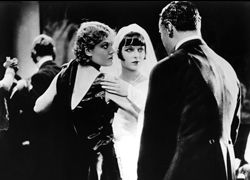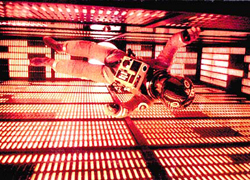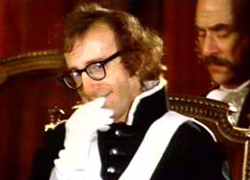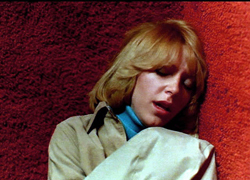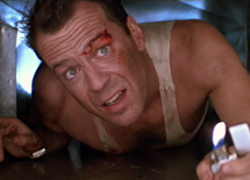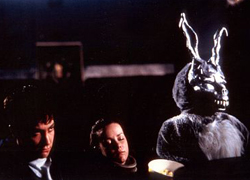These are 100 movies that are my favourites — they’re movies I enjoy, and that I enjoy because they’re genuinely great films. Some are masterfully made, some simply hit a powerful personal chord, and few have a single element so brilliant they make up for other flaws. Following the critical concensus is not even an option for me, but I tried to avoid simply being contrarian, and I didn’t consciously try to reach any sort of balance — it’s not a mix of classics and new films, or obscure and well-known, or English-language and subtitled. If there’s a bias toward Asian cinema and 1990s indie films over European classics and Academy Award winners, that’s simply because my aesthetic tilts that way, not because I thought there should be more Kurosawa movies. If there aren’t many movies from the thirties, well, it’s because I liked what came before and after a whole lot better. At the same time, I have no problem putting classics like Citizen Kane and Singin’ in the Rain and Jaws on there, too.
Also, this is obviously not set in stone. I whittled down my original list from about 200 to 125 pretty easily, but of the last 25 I cut, pretty much any of them could have bumped something from this list off if I was in a slightly different mood.
Finally, I arbitrarily cut the list off at 2005. There were a few movies from after that I was considering, but I think I need a chance to see them again to judge how well they hold up.
Now that that’s out of the way, here’s the list, in the best order ever: chronological order. This list may well be all you ever need to know about me.
Notably absent: French cinema (The Wages of Fear came very close); “traditional” Westerns (only High Noon even made my initial list); Fellini; Ozu; Soderbergh; Godard; Ford; Eisenstein; Lean; Renoir; The Wizard of Oz; Casablaca (that was a hard one to cut); Bonnie and Clyde. Only four of my picks won the Academy Award for Best Picture. Only three of the AFI top-ten made even my top 100: The Godfather, Citizen Kane and Singin’ in the Rain.
81 of the films are in English. 4 are in Japanese, 3 in Cantonese, 3 in German, 2 in Korean, 1 in Russian and 1 in Spanish. 2 were made with multiple languages. 3 are silent. 24 films are from the 1990s. 20 are from the 1970s. I actually do think those decades are the two high points of English-language cinema, so that wasn’t a surpize.
Two Canadian films made the list. I had several other short-listed, but I was forced to ask myself if I they were really my favourites, or if there wasn’t some national pride in there. The two that made it (Videodrome and Careful) really are among my favourites.
Four documentaries made the final cut, and two were by Werner Herzog, who also got two non-docs on the list. There are two animated films, and they are both from the 2000s, which either says something about me, or something about animation.
Directors with more than one film on the list: Werner Herzog (4); Akira Kurosawa (2); Billy Wilder (3); Alfred Hitchcock (3); Stanley Kubrick (3); Francis Ford Coppola (3); Robert Altman (3); Woody Allen (2); Martin Scorsese (2); Orson Welles (2); George A Romero (2); Rob Reiner (2); Wim Wenders (2); John Woo (2); Joel and Ethan Coen (2); Kevin Smith (2); Wes Anderson (2); Richard Linklater (2); Peter Jackson (2).
Only two films on the list were directed by women. Hey, at least it’s better than the AFI tally of zilch.
bonus! left off the list
As I said above, there were about two dozen films that could just as easily have made the cut. In no particular order, they are: Ran; Manhattan; Return of the King; Star Wars; Aguirre; Yi Yi; Kundun; Dead Man; Gates of Heaven; The Taking of Pelham One Two Three; McCabe & Mrs. Miller; Patton; Bonnie and Clyde; The Wages of Fear; Seconds; Yojimbo; Casablanca; A History of Violence; Amateur; Silence of the Lambs; Dead Alive; Blood Simple; The Tenant; Kill Bill; Last Life in the Universe; Psycho; Aliens; Unforgiven; Reservoir Dogs.
And then there are a few films from the past couple of years that might one day make it onto the list, but I need to rewatch them first: Death Proof; Knocked Up; Children of Men; Spring Summer Fall Winter… and Spring; Once; The Proposition.
